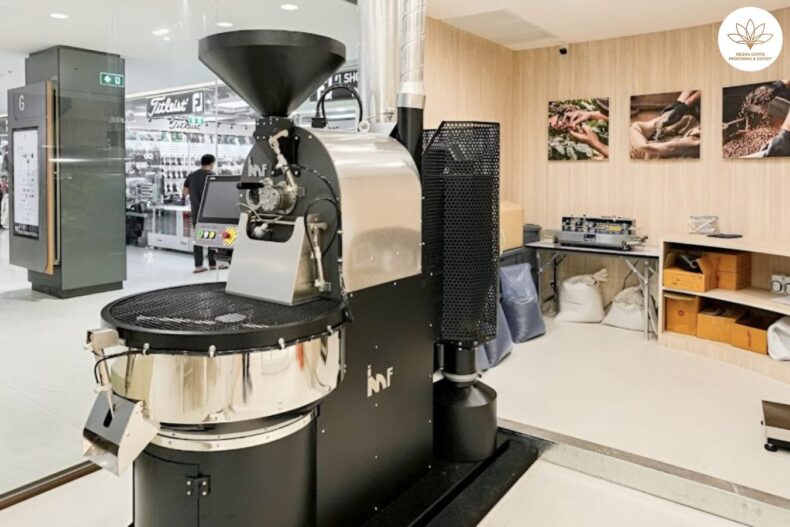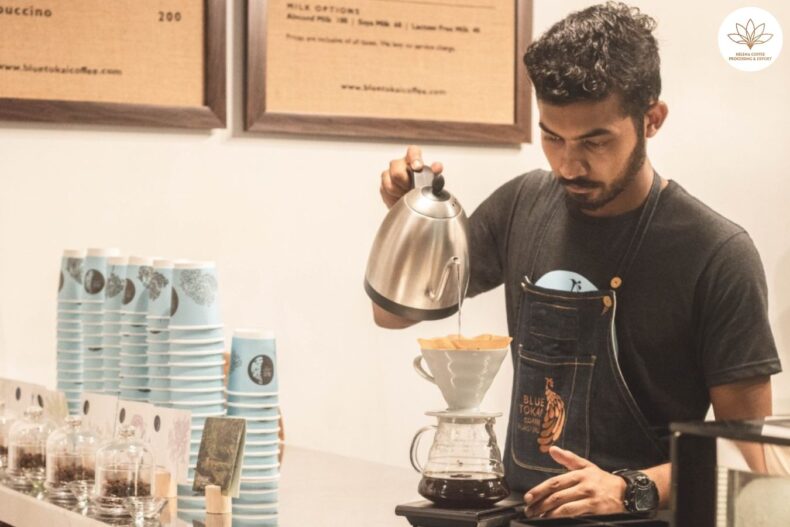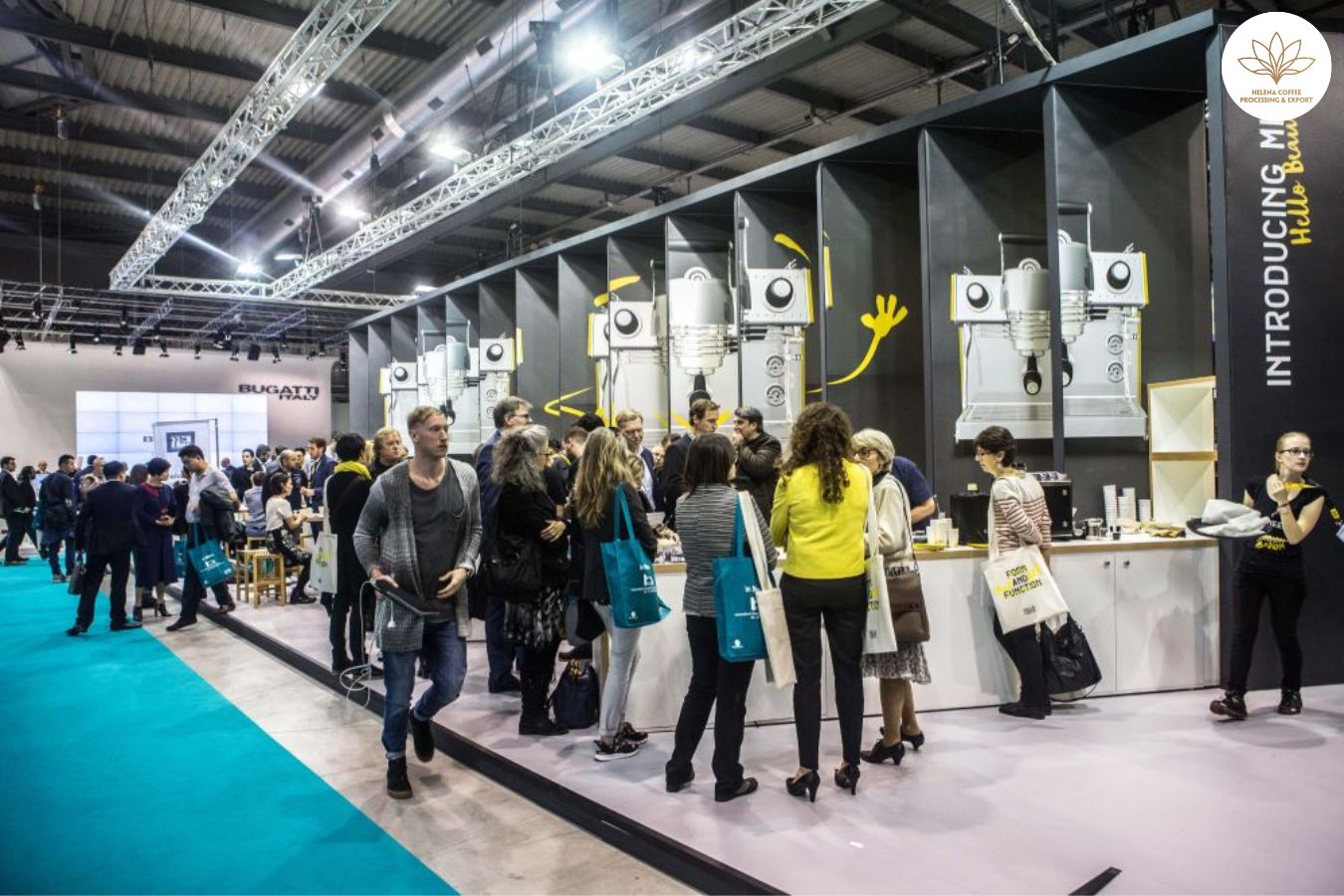
Coffee Trade Shows : The landscape of coffee trade shows is experiencing a remarkable growth spurt, with new events emerging globally each year. These gatherings are becoming a staple for the industry, drawing participants from every corner, and each iteration seems to outdo the last in scale and attendance.
Participants range from the industry’s stalwarts to the burgeoning newcomers, all converging on these platforms. These trade shows serve as a nexus for networking, offering rich opportunities for businesses of all sizes to engage with prospective investors, collaborators, and clientele.
Yet, for the small business owner, these events can pose significant hurdles. The financial outlay for attendance is not insubstantial, the logistics can be daunting, and in a marketplace often dominated by large corporations, ensuring a return on investment can be challenging for the smaller entities.
To delve deeper into these experiences, I engaged with two industry entrepreneurs: Josh Tarlo, the mind behind Headstand, and David Donde, the creator of Truth Coffee Roasting. Their insights, which follow, shed light on navigating these vibrant but complex events.
The Financial Balancing Act of Coffee Trade Shows
Coffee’s social nature is embedded in our culture, where friends meet for lattes, deals are made over cappuccinos, and local coffee shops become community cornerstones.
This communal spirit is echoed in the industry’s affinity for trade shows, where professionals from across the coffee world convene to network and forge connections. The events themselves are diverse, ranging from casual, consumer-centric gatherings to formal business-to-business expos.
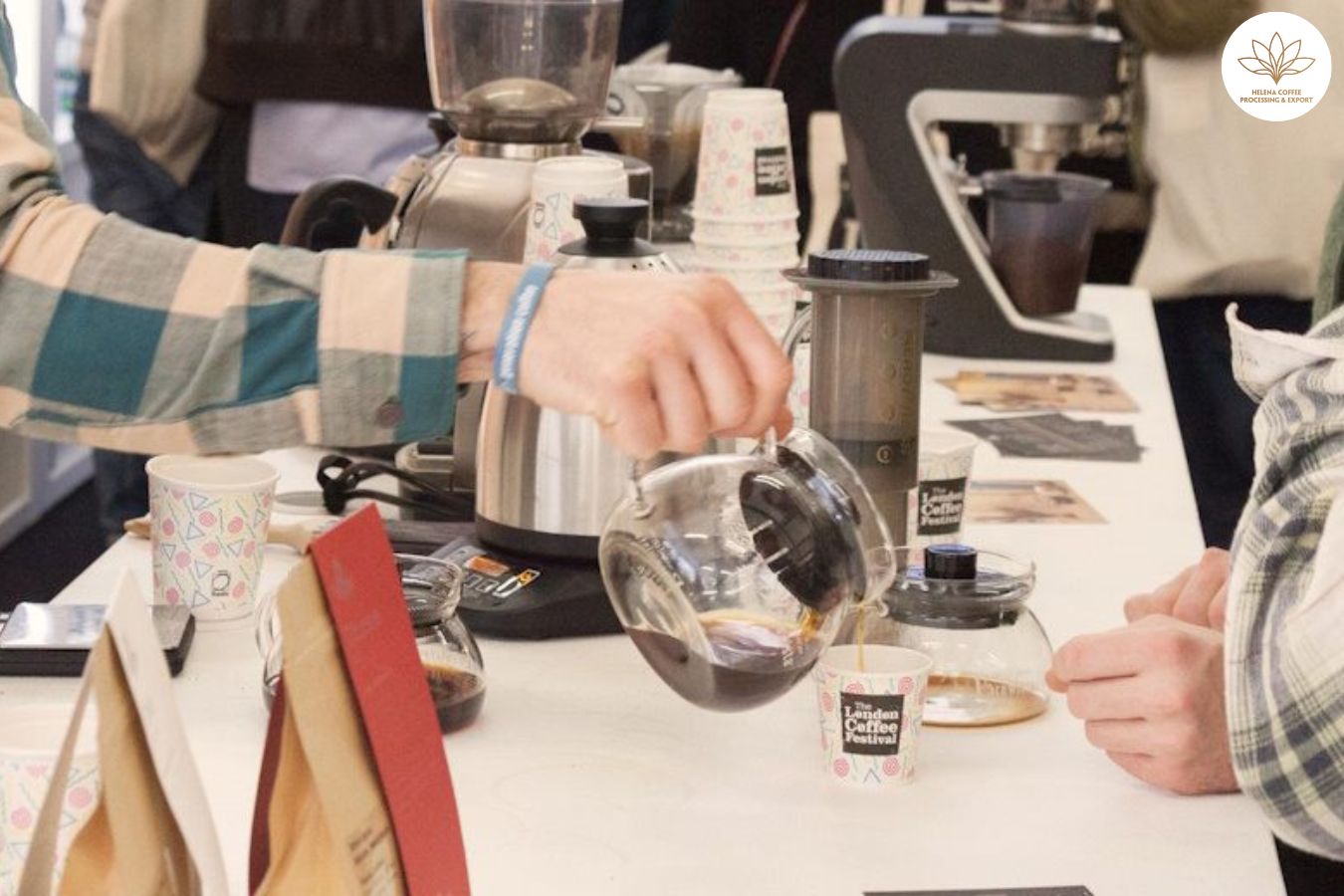
While networking and business development are primary draws for these shows, they are also home to innovative events like the World Coffee Championships and Coffee Masters, adding a competitive edge to the proceedings.
Before participating, businesses must navigate the logistics of event registration and booth reservation—costs that can vary greatly. Small regional shows may charge around £500 (US $634), whereas premier event spaces can command fees exceeding £50,000 (US $63,463). Large companies with ample marketing funds find this process straightforward, but for smaller businesses, where such costs can eat into a significant portion of their marketing budget, the stakes are higher, and the need for a return on investment is critical.
Understanding the Full Spectrum of Costs
Josh Tarlo, founder of Headstand and a veteran of the UK Coffee Championships, brings a wealth of experience from his time as a green coffee buyer and involvement in roasteries. He notes the variability in trade show costs and suggests that smaller regional events offer a viable opportunity for covering expenses through retail sales. He shares insights from the Glasgow Coffee Festival, where some exhibitors report the rare benefit of turning a profit.
However, the expenses can accumulate swiftly. Not only does setting up an exhibition stand come with a high price tag, but the cultural expectation at these events to provide free samples adds to the financial pressure.
David Donde, the mind behind Truth Coffee Roasting and an experienced competition judge, offers a candid take. He suggests that the notion of breaking even at a trade show is so optimistic that one might consider it less painful to metaphorically ‘shoot oneself in the foot.’ His point underscores the harsh economic reality that businesses often face in the vibrant but costly arena of coffee trade shows.
Navigating the Trade Show Landscape for Coffee Businesses
For small coffee businesses, breaking even at every trade show may be an aspirational goal rather than a practical expectation. However, this doesn’t render participation ineffective.
Trade shows offer a unique environment where a concentrated audience of industry insiders, potential clients, and consumers is at arm’s reach. Leveraging such exposure can justify the investment of resources.
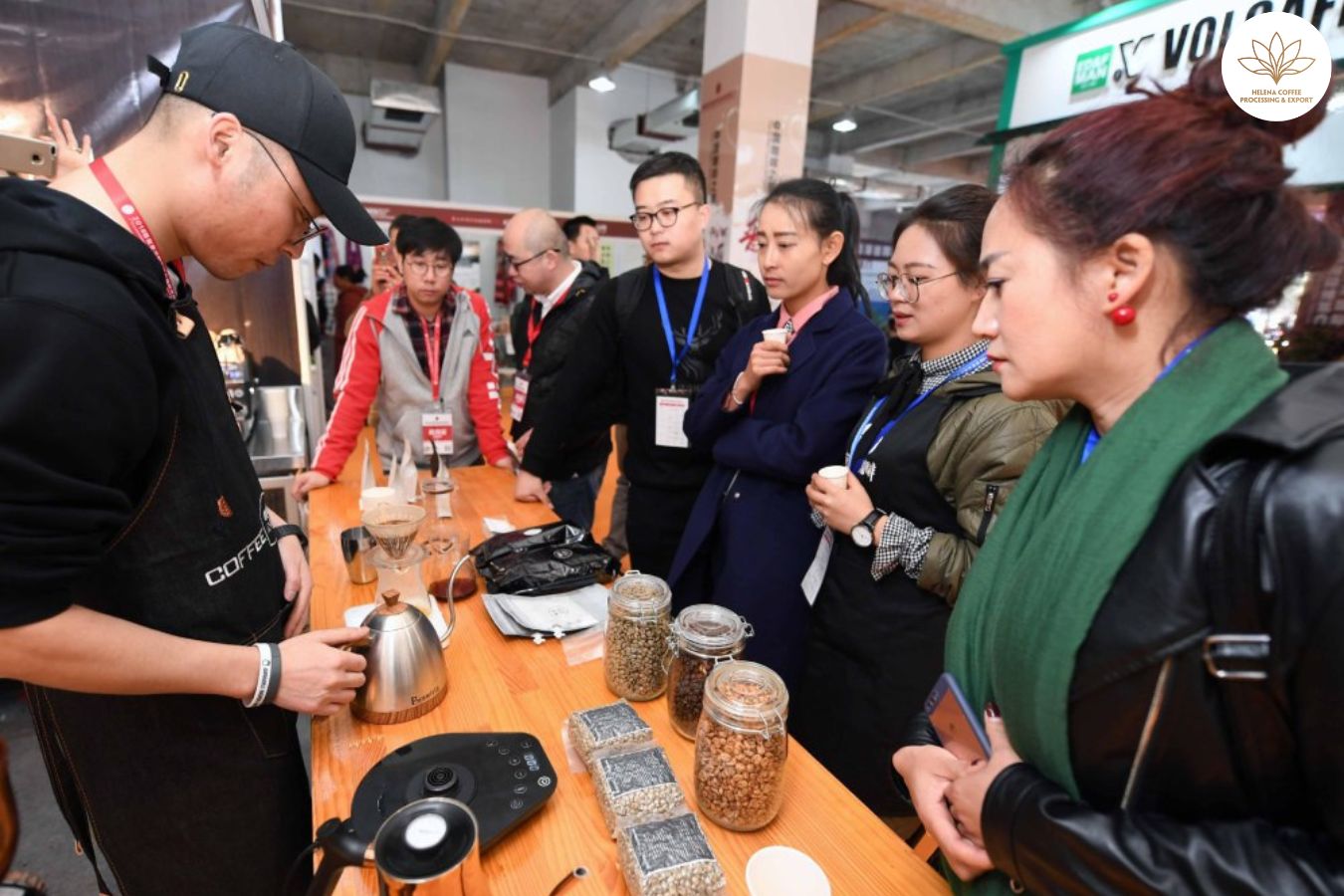
David acknowledges the strategic importance of these events. “The primary return I seek from trade shows is exposure,” he shares. “They have opened doors to international media, introduced me to potential trade partners, and allowed me to engage directly with the public.”
He further highlights the value of personal interactions that trade shows facilitate, which are less likely to occur in retail spaces or cafés. It’s within this setting that businesses and consumers can engage in meaningful dialogue, often leading to stronger connections and brand loyalty.
Trade fairs also serve as a prime platform for establishing new business relationships. “They’re an opportunity to meet those who might not know about your business or might assume it’s too small for collaboration,” David points out, underlining an opportunity that is seldom found elsewhere within the industry.
Making an Impact Amidst the Noise
Trade shows can streamline the process of networking, offering a more congenial space for buyers and sellers to meet compared to the traditional cold-call approach.
Yet, Josh notes that not all exhibitors are on equal footing. “From a brand-building view, unless you’re debuting an innovative product, it’s tough to justify the cost if you aren’t one of the market leaders,” he explains. “The larger events are particularly challenging, with so many participants vying for attention—it’s difficult to stand out.”
He reflects on the randomness of connecting with buyers, contrasting the coffee industry’s events with other sectors that may offer more structured opportunities for pitching to and meeting buyers. “At coffee shows, success can sometimes feel like a gamble—you set up and hope for the best,” Josh remarks, emphasizing the element of chance in these engagements.
Strategic Resource Allocation for Trade Show Success
Small businesses aiming to capture attention in the bustling environment of established trade shows must carefully consider their strategy for investment.
David emphasizes the significance of dedicating time effectively. “Attending a trade show demands full commitment,” he advises. “It’s crucial to come equipped with comprehensive information, innovative products, or a willingness to engage in fresh, compelling conversations—otherwise, the effort may be in vain.”
Josh suggests a targeted approach, aligning participation with market relevance and geographic considerations. “For us, the Bristol Coffee Festival aligns with our strategy, given our substantial wholesale presence in the region,” he explains. “It’s an opportunity for brand reinforcement directly where our customer base is concentrated.”
However, the ultimate measure of success at a trade show isn’t necessarily the volume of traffic to one’s booth. David points out the value of quality over quantity in these interactions. “I prioritize trade shows that resonate with my target market rather than simply opting for the largest crowd,” he asserts. “A smaller, more relevant event where attendees are genuinely interested in your offerings can be more valuable than one with thousands who are indifferent—even if it means connecting with just a handful of the right people.”
Guidance for Trade Show Novices
David and Josh concur: recouping the costs of participating in coffee trade shows is a daunting task for small businesses. With substantial expenses for exhibition space, the expectation to provide samples, and often modest sales, the financial return can be elusive.
Yet, trade shows offer unique opportunities to engage a specific audience already interested in coffee. A well-executed booth can attract significant attention, providing valuable exposure despite the size of the business or the event.
Additionally, standing shoulder to shoulder with industry leaders at these events can serve as a powerful springboard for emerging businesses eager to amplify their presence.
Exploring Alternatives to Traditional Trade Show Exhibiting
Recognizing that constant trade show participation may be unsustainable for smaller brands, alternative approaches to market engagement are vital.
Social media marketing, for instance, has revolutionized the way brands connect with consumers, often yielding a broader reach at a fraction of the cost.
Josh illustrates this point: “By allocating £100 or £200 to social media campaigns, we generate far more consumer impressions than we would at a trade show. Pair that with targeted product giveaways in high-traffic areas, and the return on investment is significantly enhanced, both in terms of reach and engagement.” His experience suggests that such innovative marketing strategies can outperform traditional trade show investments, offering a more efficient way to capture consumer attention.
In an evolving market peppered with numerous expos and festivals, it’s crucial for coffee businesses to maintain visibility. However, discerning the most beneficial opportunities is equally important, particularly for smaller brands operating with limited marketing resources. Striking the right balance between the expenses of participation and the prospective sales opportunities is essential for achieving sustainable success.
FAQS:
- Coffee Trade Shows in Germany: The Ultimate Guide for Coffee Lovers
- Coffee prices increased sharply but farmers and export businesses did not benefit
- Coffee Roasting Technique: Effect of Humidity on Coffee Roasting

